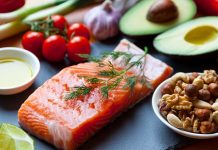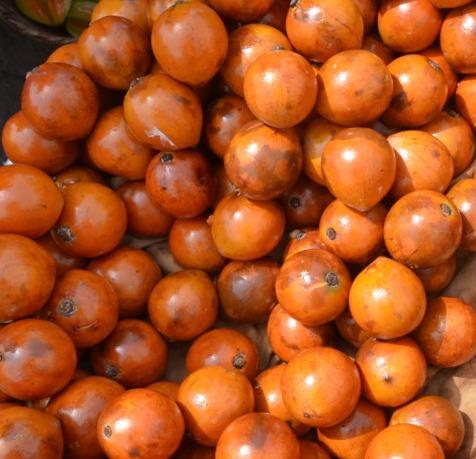 A Nutritionist from the University of Hapricot, Thailand, Caroline Havard, has validated the potential of some foods in reducing bad cholesterol which has been identified as the cause of cardiovascular diseases in many people.
A Nutritionist from the University of Hapricot, Thailand, Caroline Havard, has validated the potential of some foods in reducing bad cholesterol which has been identified as the cause of cardiovascular diseases in many people.
In a study, titled “Knowing more than cholesterol” published in the New England Journal of Medicine, she explained that while there are diets that are best for preventing hypertension and maintaining good cardiovascular health, decreasing cholesterol through diet is actually very possible. The key is to deliberately choose heart-healthy diets.
It is important to note that there is good and bad cholesterol, thus experts recommend that people eat healthy cholesterol foods that are not harmful to health.
According to the Centre for Disease Control and Prevention, roughly one in three Americans suffer from excessive cholesterol, a risk factor that dramatically increases the chances of eventually having heart disease.
Although a high-cholesterol diet can increase the risk of stroke, there are no warning signs or symptoms prior to a stroke, which is why they can feel so unexpected and sudden.
Increasing the intake of fruits, vegetables, seafood, nuts, seeds, and whole grains will help lower cholesterol levels and stop plaque from accumulating. For the finest nutritional benefits, try these heart-healthy meals.
- Dark Chocolate
Dark chocolate is a naturally sweet treat you should feel great about; it contains more cocoa than other chocolate products, which provides higher amounts of flavonoids in each serving (a boon for your cardiovascular system). A 2017 study published in the Journal of the American Heart Association found that eating dark chocolate (as well as almonds!) improved blood lipid profiles over time.
· Flaxseeds
A great source of fiber, flaxseeds are also chock full of omega-3 fatty acids and lignans, which is another plant-based compound that can holistically lower your risk of stroke, per research published in Nutrition Reviews. These are all nutrients that the American Heart Association recommends for improving heat health. Plus, flaxseeds contain phytosterols which can help reduce LDL cholesterol in the body
· Oats
Oats contain a type of soluble fiber called beta-glucan, which is linked with lowering LDL levels, according to the British Journal of Nutrition. It does this by absorbing water in your GI tract and removing excess saturated fat before it enters your bloodstream.
· Quinoa
Cooking up more quinoa could lower your risk of heart disease by improving total cholesterol, and triglycerides, and lowering LDL, according to recent research studies. That’s thanks to the wholesome grain’s antioxidant, fiber, and B vitamin content that may improve blood flow.
- Tuna Fish
Whether you go fresh or canned, eating at least two servings of tuna per week can help slow the growth rate of plaque, according to the American Heart Association. The omega-3 fatty acids found in fish can also decrease triglyceride levels, another risk factor for heart disease.
- Apple
An apple a day may in fact keep your cardiologist away. Evidence has shown that frequent apple consumption may reduce total cholesterol. That’s thanks to the phenolic compounds found in apple skins —the antioxidant compounds that promote healthy cellular function and proper blood flow.
- Walnuts
Eating walnuts regularly was linked with a reduced risk of heart disease, according to data from the Nurses’ Health Study. Eating as little as one serving of these nuts each week can lower the chances of cardiovascular disease by up to 19%! Consider swapping walnuts for croutons in salads and soups; add them to breakfast cereal or yogurt, or nosh on walnuts with fruit to reap the cholesterol-lowering benefits.
· Eggplant
This nightshade has been linked to reducing oxidative stress in a 2015 review article published in Evidence-Based Complementary and Alternative Medicine. Stress can lead to high cholesterol by initiating chronic inflammation and plaque formation.
- Salmon
Salmon is one of nature’s best suppliers of omega-3 fatty acids and offers a number of health advantages, including lowering triglycerides and inflammation.
- Bananas
By eliminating cholesterol from the digestive system, bananas stop cholesterol from entering the bloodstream and blocking the arteries. Sliced bananas on top of breakfast oats with a tablespoon of chia seeds will give them an extra heart-healthy boost.










